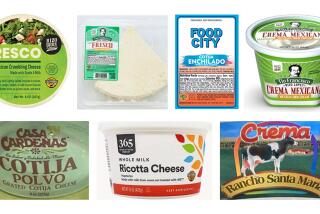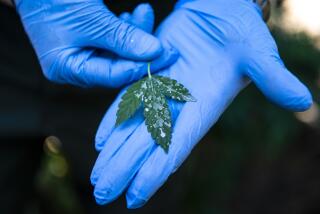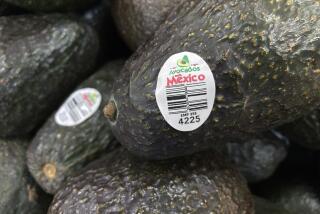FDA Ends Stiff Monitoring of Imported Chilean Fruit
- Share via
The Food and Drug Administration on Friday ended its requirement that importers of Chilean fruit carry out intensive monitoring--a stepped-up inspection program triggered after the discovery March 12 of two cyanide-tainted grapes.
“As of today, we’re back to normal surveillance,” said FDA spokesman Bill Grigg. Chilean security measures are now adequate to screen export fruit, he said.
Word of the relaxation spread quickly from Washington to the half a dozen U.S. ports that receive Chilean produce. These include Philadelphia, where the tampered grapes were found, and Long Beach and Los Angeles, which handle about 40% of the fruit Chile exports.
“They told us to stop and desist immediately,” said Richard Estes, manager of David Oppenheim-California, a major importer. “The whole issue is gone, but the costs sure are real.”
Lower Grape Prices
The FDA on March 17 ordered inspections increased to a 5% sample from the usual 1%. No other contaminated fruit has been found.
Estes said losses to the nearly $1-billion Chilean fruit industry, from growers to importers, could exceed $100 million. Importers also are receiving less for shipments than before the tainted grapes were found during intensive searches triggered by several anonymous tips received by the U.S. Embassy in Santiago.
Grape prices have fallen since the fruit returned to market, Estes said. Grapes that fetched $10 to $14 a box before March 12 sell now for $7 to $10, he said.
Few retailers have featured the return of Chilean fruit in their grocery ads as the import season winds into its final weeks. The first arrivals of California summer fruits are due around May 1. Retail prices hovered between 70 cents and 80 cents a pound, compared to more than $1 earlier.
The Chilean government has agreed to pay some of the costs of the fruit voluntarily recalled from produce departments and subsequently destroyed.
More to Read
Eat your way across L.A.
Get our weekly Tasting Notes newsletter for reviews, news and more.
You may occasionally receive promotional content from the Los Angeles Times.










